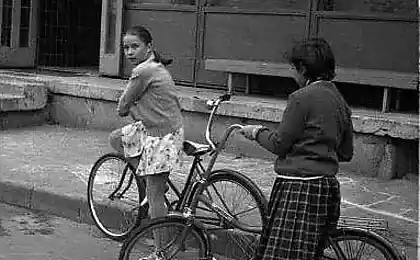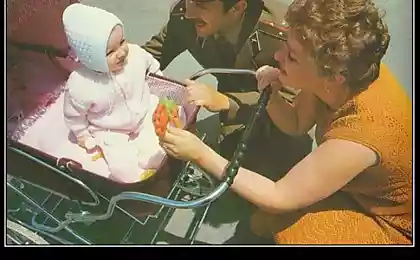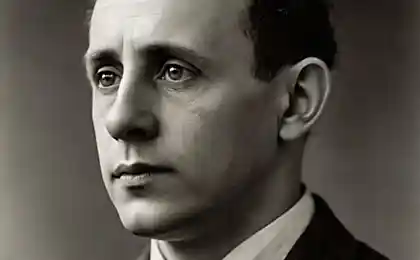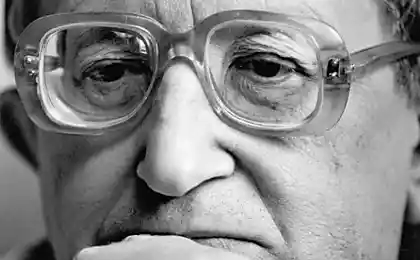271
Phrases that betray a person who lived in the USSR, the modern generation does not understand this.
Favorite movies and books leave in our memory phrases and statements. They form part of our vocabulary and are even inherited. For example, from parents who grew up in the postwar era, we inherited many phrases from politicians and actors of the time. And we do not even think where this or that phrase came from and under what circumstances it was said. Do you remember where the phrase “the bone is thrown twice” came from?

Today's edition. "Site" It will remind you of this, as well as other phrases from past eras that are relevant today.
The bone is tossed twice, "Let's throw the bones," a phrase that causes hair to move on the head. But there is nothing to fear, no one is going to throw any bones anywhere. The phrase implies a choice of several occupational options. But there is another interpretation of this phrase. Because the bone is thrown twice. The origin of this phrase is attributed to Caesar. Long before the formation of the Soviet state, Caesar had little faith in a rebellion against the Roman Republic, but still decided to take a risk. Then, according to historians, he uttered the phrase “And still throw a bone”, which meant “risky, because there is nowhere to retreat.”

The second place in our ranking is occupied by the phrase of Joseph Stalin. Life has become better, life has become more fun. Today, this phrase is perceived as a kind of sarcasm about what is happening around. And few people know that this phrase was a motivating slogan for the Stakhanov workers in 1935. This phrase was printed on posters, it was designed to lead to a bright future and with a good mood to take up work. With his speech, Stalin convinced people that life should be fun and then the strength to work would be even greater. After all, the main task of the Stakhanov movement was to exceed the plan.

The phrases of a certain era "Let us understand for three." The phrase is known to everyone whose youth fell on the 50s. Anti-alcohol campaigns were regularly conducted in the USSR. People have always loved drinking a lot. But Nikita Khrushchev decided to fight this problem very hard. In 1958, the Central Committee of the CPSU adopted a resolution “On strengthening the fight against drunkenness and on restoring order in the trade of strong alcoholic beverages.”
The ban on alcohol has reached its maximum. It was almost impossible to buy vodka, and its price increased significantly. It was taken out like imported jeans. Vodka became the number one currency in the country of the Soviets. In addition, small volumes, such as “scumbags” of 125 ml and “cheeks” of 200 ml, disappeared from sale. But lovers of “liquid bread” found a way out. A half-liter bottle of vodka was perfectly divided into three faceted glasses. Hence the origin of the phrase, when three people gathered near the pubs, so that it was not so expensive to buy one whole bottle of vodka.

Another phrase that is simply inherited: “Do not teach me to live, better help financially.” The release of the film “Moscow does not believe in tears” was a real furor in the film industry of the USSR. It had everything that was so valuable in Soviet times. Industrialization, power, and independence. And that anyone who works well can live well in a big apartment and buy a car. But this phrase also has a secret meaning. There were too many slogans and empty chatter in the Soviet era. At a time when there was an elementary shortage of food and household items.

If we talk about films, then comedies in Soviet times were also able to shoot. The film “Ivan Vasilyevich changes profession” became a classic. It's broken into a thousand phrases. But here's one that stands out. "I demand a continuation of the banquet." Have you ever said that phrase when the party comes to an end?

Funny things, but back to the politicians. Especially loved by the people with his phrases Nikita Khrushchev. He tried to get closer to America, and at the same time to show that the USSR is not worse, and sometimes even better than America. Viewing the American exhibition in 1959, which was held in Moscow with Sokolniki, Khrushchev said: We have at our disposal funds that will have grave consequences for you. We're going to show you your mother! The translator translated the phrase literally: “We will show you Kuzma’s mother!” U.S. Vice President Richard Nixon never understood who Kuzma was or what his mother was so famous for.
The great champion of the fair distribution of resources in the country, Vladimir Ilyich Lenin, in order to somehow fight sluts, included in the first Soviet Constitution the phrase “He who does not work, does not eat”. The phrase was taken literally, and laziness and parasitism were condemned and suppressed.

Today's edition. "Site" It will remind you of this, as well as other phrases from past eras that are relevant today.
The bone is tossed twice, "Let's throw the bones," a phrase that causes hair to move on the head. But there is nothing to fear, no one is going to throw any bones anywhere. The phrase implies a choice of several occupational options. But there is another interpretation of this phrase. Because the bone is thrown twice. The origin of this phrase is attributed to Caesar. Long before the formation of the Soviet state, Caesar had little faith in a rebellion against the Roman Republic, but still decided to take a risk. Then, according to historians, he uttered the phrase “And still throw a bone”, which meant “risky, because there is nowhere to retreat.”

The second place in our ranking is occupied by the phrase of Joseph Stalin. Life has become better, life has become more fun. Today, this phrase is perceived as a kind of sarcasm about what is happening around. And few people know that this phrase was a motivating slogan for the Stakhanov workers in 1935. This phrase was printed on posters, it was designed to lead to a bright future and with a good mood to take up work. With his speech, Stalin convinced people that life should be fun and then the strength to work would be even greater. After all, the main task of the Stakhanov movement was to exceed the plan.

The phrases of a certain era "Let us understand for three." The phrase is known to everyone whose youth fell on the 50s. Anti-alcohol campaigns were regularly conducted in the USSR. People have always loved drinking a lot. But Nikita Khrushchev decided to fight this problem very hard. In 1958, the Central Committee of the CPSU adopted a resolution “On strengthening the fight against drunkenness and on restoring order in the trade of strong alcoholic beverages.”
The ban on alcohol has reached its maximum. It was almost impossible to buy vodka, and its price increased significantly. It was taken out like imported jeans. Vodka became the number one currency in the country of the Soviets. In addition, small volumes, such as “scumbags” of 125 ml and “cheeks” of 200 ml, disappeared from sale. But lovers of “liquid bread” found a way out. A half-liter bottle of vodka was perfectly divided into three faceted glasses. Hence the origin of the phrase, when three people gathered near the pubs, so that it was not so expensive to buy one whole bottle of vodka.

Another phrase that is simply inherited: “Do not teach me to live, better help financially.” The release of the film “Moscow does not believe in tears” was a real furor in the film industry of the USSR. It had everything that was so valuable in Soviet times. Industrialization, power, and independence. And that anyone who works well can live well in a big apartment and buy a car. But this phrase also has a secret meaning. There were too many slogans and empty chatter in the Soviet era. At a time when there was an elementary shortage of food and household items.

If we talk about films, then comedies in Soviet times were also able to shoot. The film “Ivan Vasilyevich changes profession” became a classic. It's broken into a thousand phrases. But here's one that stands out. "I demand a continuation of the banquet." Have you ever said that phrase when the party comes to an end?

Funny things, but back to the politicians. Especially loved by the people with his phrases Nikita Khrushchev. He tried to get closer to America, and at the same time to show that the USSR is not worse, and sometimes even better than America. Viewing the American exhibition in 1959, which was held in Moscow with Sokolniki, Khrushchev said: We have at our disposal funds that will have grave consequences for you. We're going to show you your mother! The translator translated the phrase literally: “We will show you Kuzma’s mother!” U.S. Vice President Richard Nixon never understood who Kuzma was or what his mother was so famous for.
The great champion of the fair distribution of resources in the country, Vladimir Ilyich Lenin, in order to somehow fight sluts, included in the first Soviet Constitution the phrase “He who does not work, does not eat”. The phrase was taken literally, and laziness and parasitism were condemned and suppressed.
How it happened that Toto Cutugno all his life bowed to his wife, but the child he gave birth to another
Glass fencing to order: Modern safety and elegance from the Vitrazh-SPb company























